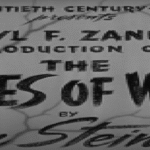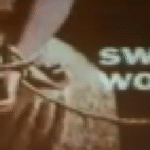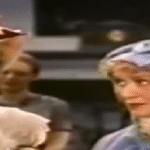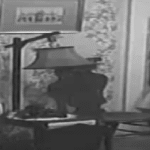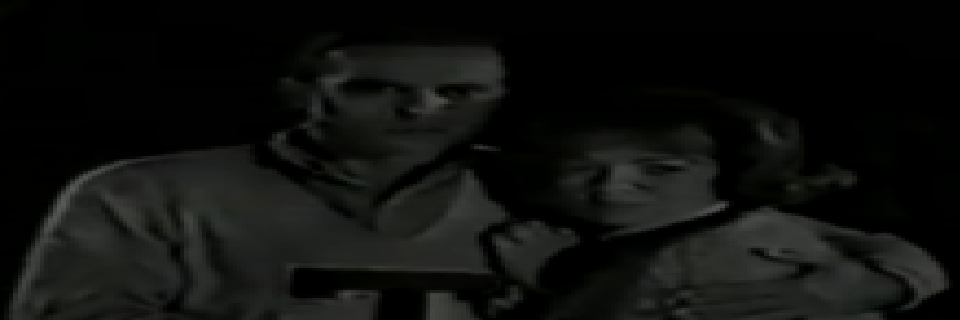The Yesterday Machine, directed by Russ Marker, is a low-budget American science fiction film from 1963, blending elements of time travel, war time intrigue, and horror. Though little-known today, it stands as an intriguing artefact of early independent sci-fi cinema, marked by its earnest performances, inventive premise, and a distinctly eerie atmosphere, despite technical and financial limitations.
The story begins with an unsettling incident: a young couple, Jimmy and Dorothy, are travelling through rural Texas when their car breaks down near an isolated area. Seeking help, Jimmy ventures off, only to be attacked and killed under mysterious circumstances. Dorothy, terrified, runs for her life and later recounts her experience to the authorities. Her account is bewildering, she speaks of a soldier clad in a Second World War era German uniform who shot Jimmy. Her claims are met with scepticism, as such an event seems fantastical.
The local police, led by the diligent and no-nonsense Lieutenant Partane, begin investigating Jimmy’s death. Their initial suspicion is that Dorothy may be traumatised or delusional, but soon strange clues emerge: a bullet removed from Jimmy’s body is discovered to be an authentic German Luger round from the 1940s, unfired and in mint condition. Furthermore, witnesses report strange sightings in the area, men in outdated uniforms, odd lights, and unexplained disappearances.
Meanwhile, university professor Dr. Carmichael becomes involved after one of his students, Margie, goes missing while investigating the case herself. It becomes clear that something far more sinister than a lone madman is at work.
As the investigation deepens, it is revealed that a former Nazi scientist, Dr. von Hauser, has survived the war and gone into hiding in America. Consumed by his twisted ambitions, von Hauser has spent the years since perfecting a machine capable of manipulating time itself, the eponymous “Yesterday Machine.” His goal is to use the device to alter the outcome of the Second World War, granting the Nazis ultimate victory through time travel and historical interference.
Von Hauser’s lair is hidden within the abandoned ruins of an old prison, an appropriately grim setting for his experiments. Here, he has created a temporal bubble, a zone where time can be distorted, allowing soldiers from the past to appear in the present day. These soldiers are under his control, enforcing his will and protecting his secrets.
Margie, having stumbled upon von Hauser’s operations, becomes a prisoner. The professor, Lieutenant Partane, and the police team launch a desperate effort to rescue her. As they enter von Hauser’s territory, they encounter the full extent of his deranged ambitions. Von Hauser, portrayed with chilling fervour, believes himself justified, convinced that restoring the Nazi regime is a noble and righteous cause.
A tense confrontation ensues, during which von Hauser boasts of his machine’s power. He reveals that by using the Yesterday Machine, he can send individuals back in time or bring events from the past into the present. The philosophical and ethical implications of tampering with history are briefly discussed—von Hauser dismisses such concerns with megalomaniacal zeal.
As von Hauser prepares to unleash his machine’s full power, the protagonists act decisively. In a climactic sequence, a gunfight breaks out, blending traditional action with eerie science fiction elements. The machine itself, a towering device filled with spinning lights and humming coils, becomes unstable during the confrontation. Von Hauser is killed amidst the chaos, and the Yesterday Machine, deprived of its creator’s guidance, self-destructs, its energy collapsing upon itself.
The film closes with the surviving characters reflecting on the madness they have witnessed. Though von Hauser’s plan has been thwarted, the dangers of unchecked ambition and the temptation to rewrite history remain potent themes. Lieutenant Partane and Dr. Carmichael express relief that the nightmare is over, yet there is an underlying suggestion that the knowledge and potential for such manipulation may not be easily eradicated.
The Yesterday Machine is, in many ways, emblematic of 1960s’ independent science fiction. Shot on a minimal budget, it utilises stark black and white cinematography to great effect, lending the film a cold, haunted quality. The use of shadow and light is particularly notable, with many scenes unfolding in dimly lit corridors, abandoned buildings, and desolate landscapes, reinforcing the film’s tone of suspense and dislocation.
Dialogue is often delivered in a stilted, theatrical manner, a consequence both of the limited experience of the cast and the conventions of the era’s low budget film making. However, the earnestness of the performances, particularly Tim Holt as Lieutenant Partane, gives the film a sincerity that compensates for its technical shortcomings.
The special effects are rudimentary but imaginative. The temporal distortions created by the Yesterday Machine are conveyed through simple camera tricks, lighting effects, and editing techniques. While primitive by modern standards, they possess a certain charm and inventiveness, underscoring the ambition of the filmmakers despite their constraints.
Narratively, the film attempts to weave together multiple genres, science fiction, crime thriller, war drama, and horror, which sometimes results in a slightly disjointed tone. Nevertheless, the underlying concept of meddling with time to alter history is a compelling one and remains relevant to contemporary audiences.
At its heart, The Yesterday Machine is a cautionary tale about the dangers of attempting to control the past. It reflects post-war anxieties about science and technology, particularly fears that former enemies might continue their ambitions in secret. The film taps into the broader Cold War era fear of hidden threats and scientific overreach, common in American cinema of the period.
Moreover, the depiction of von Hauser as a tragic yet monstrous figure underscores the recurring theme of science divorced from morality, a scientist whose genius is corrupted by ideology and hatred. His refusal to accept defeat and his obsession with rewriting history serve as stark warnings about the perils of nostalgia and the refusal to move beyond past grievances.
Though little remembered today, The Yesterday Machine remains an intriguing relic of 1960s’ science fiction. Its blending of time travel, Nazi villainy, and small-town Americana creates a uniquely eerie atmosphere. Despite technical limitations and occasional narrative unevenness, the film’s central idea, that the past, if tampered with, can become a present-day nightmare, resonates powerfully. For aficionados of vintage sci-fi and cult cinema, The Yesterday Machine offers a fascinating glimpse into a bygone era of independent filmmaking, where ambition often outstripped resources but not imagination.

